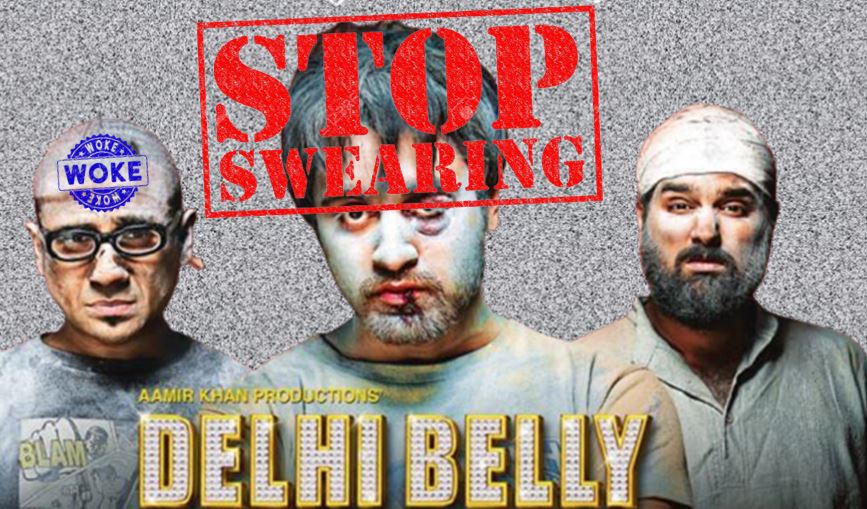The culture of abuse is probably as old as the society itself. For a major part of history, abuse was confined to the dark corners of a street as it was considered a sin to use foul language against someone. However, during the last 15 years, it has become cool to abuse someone in India.
Abusing someone is the new cool for Bollywood
The origin of abusing someone becoming a cool phenomenon can be easily traced back to the rise of on-screen abuses during the mid-2000s. But the glass ceiling was broken much before that. Movie Bandit Queen, the uncrowned queen of reality in an era when idealism ran rout on the screens was the first movie that came under controversy for characters openly abusing each other. Though, to a certain extent, the audience accepted it as it showed the reality of dacoity culture where abusing is a part of the non-stigmatized language. The same argument of realistic portrayal was extended to Ram Gopal Verma’s 1998 movie Satya and 2012 blockbuster Gangs of Wasseypur.
While abusing in Gangster movies and war-like scenarios were passed off by the public as a deviation from the normal, things started to change in the 21st century. When the movie Delhi Belly was released in 2011, it came under huge scrutiny for its open use of foul language. Before the Vir Das starred movie, abuse was believed to be confined to the hinterlands of India, but Delhi Belly was the first to present how a corporate employee who was believed to be suave and ‘cultural’ abuses as easily as an anti-social element in an Indian village. It ended up drawing a correlational link between Bandits and the western-style educated Urban elite of India.
OTT is the centre stage for abusive language
Though Bollywood still does not use foul language in mass due to regulatory oversight, it still promotes it by twisting the words. However, the place vacated by Bollywood has now been taken up by OTT platforms. These platforms which effectively are not regulated by anyone have been on the rampage when it comes to the on-screen display of abusive language.
Most popular Web Series’ like Mirzapur, Pataal Lok, Jamtara, College Romance and many more owe their success to the open use of cuss words. As Bollywood saw their place being taken up by these OTT platforms, they are also on steroids and have been trying to evade their moral responsibility by cramming unnecessary violent words.
Evolution of abuse
As language developed, people also developed a sense of morality and immorality. Abusing someone was considered immoral for 99 per cent of human civilisation. It was the deviation from the normal. Abusing someone literally translates to being rude to them. If you are frustrated by someone, you vent out your frustration by abusing them. It was intended to stop someone from use of physical violence. Moreover, to curtail both physical and mental violent tendencies, abusing someone was done in an extreme case when your animalistic tendencies are trying to take over you. Simply put, abuse was a buffer against physical violence.
How Bollywood normalised the abuse culture
Since abuse was effectively banned phenomenon in Indian society, liberal Bollywood which thrives on breaking the existing social boundary decided to utilise it The more cuss word started to translate into more box office collections. In their profiteering motive, Bollywood ended up nullifying the currency of abuse. Simply put, if governments print more money, it increases inflation, which translates to fewer products being bought from the same amount of money. In the same way, if you abuse on daily basis, you end up losing the meaning and purpose behind the abuse and on the mass level, it leads to a decrease in the respect for women members of the society.
Bollywood’s excuse
Bollywood is still stuck in the old era logic of ‘we show on the screen what happens in reality’. This is a morally bankrupt argument since today people from the entertainment industry have now become influencers, which inherently means that what they say is copied by their fan base. If they abuse, their fan base will abuse too as a sign of becoming cool. The argument that the movie industry shows reality is absurd at its face as now they openly engage in twisting the socio-moral fabric of reality.
The ill-intentioned influencers from the industry always point towards the Freedom of Expression enshrined in the Indian Constitution in order to garner the right to use cuss words on the screen. As usual, they pick and choose the particular favourable part of a text to suit their nefarious agendas. Article 19 of the constitution of India provides that if speech causes disturbance in public order, morality and decency, it can be curtailed.
It’s tough to know how much ‘Chal BC’ type language on the screen disturbs India’s public order, but people of the country certainly know that it causes a stir in the decency and morality of the society.
